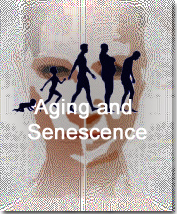
Description:
Epigenetic age prediction
A new study by Simpson and Chandra, describe the potential of epigenetic age assessment for studying the aging process quantitatively with wide application in assessment of biological clock, morbidity, and mortality. Epigenetic clock can decipher the eAge acceleration (eAge higher than chAge) or deceleration (eAge lower than chAge). However, it remains unclear whether the methylation changes that are used for prediction of the clocks are involved in aging or simply associated with the aging process. The epigenetic clock, are useful in research of many aspects of aging including determination of effectiveness of drugs that can reduce, or reverse the aging process.
Epigenetic age prediction
Daniel J. Simpson,Tamir Chandra,
First published: 20 August 2021
https://onlinelibrary.wiley.com/doi/10.1111/acel.13452
Advanced age is the main common risk factor for cancer, cardiovascular disease and neurodegeneration. Yet, more is known about the molecular basis of any of these groups of diseases than the changes that accompany ageing itself. Progress in molecular ageing research was slow because the tools predicting whether someone aged slowly or fast (biological age) were unreliable. To understand ageing as a risk factor for disease and to develop interventions, the molecular ageing field needed a quantitative measure; a clock for biological age. Over the past decade, a number of age predictors utilising DNA methylation have been developed, referred to as epigenetic clocks. While they appear to estimate biological age, it remains unclear whether the methylation changes used to train the clocks are a reflection of other underlying cellular or molecular processes, or whether methylation itself is involved in the ageing process. The precise aspects of ageing that the epigenetic clocks capture remain hidden and seem to vary between predictors. Nonetheless, the use of epigenetic clocks has opened the door towards studying biological ageing quantitatively, and new clocks and applications, such as forensics, appear frequently. In this review, we will discuss the range of epigenetic clocks available, their strengths and weaknesses, and their applicability to various scientific queries.
